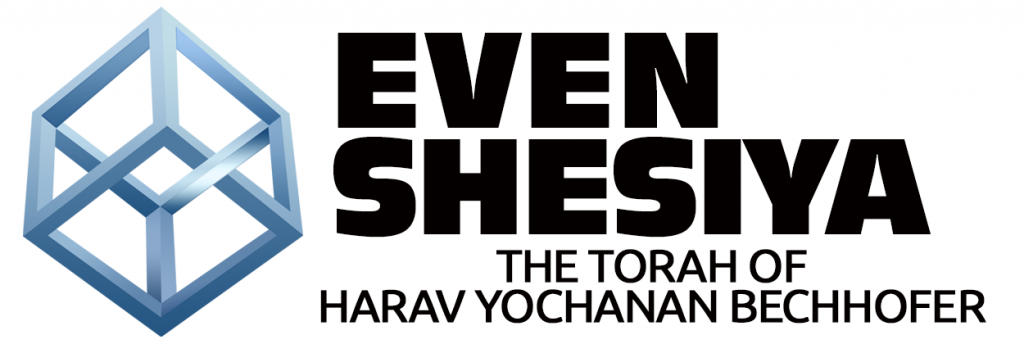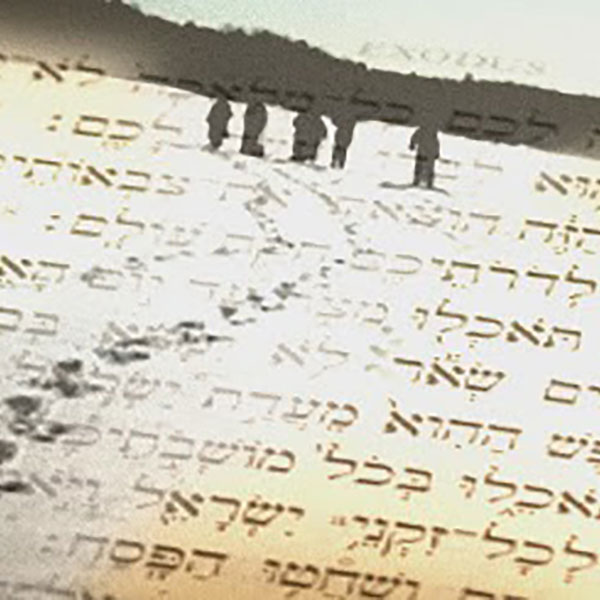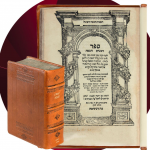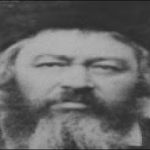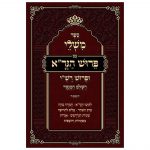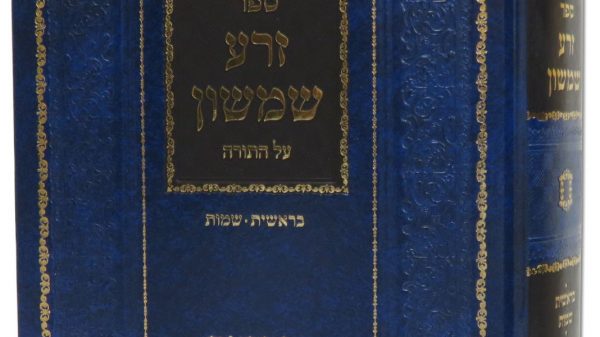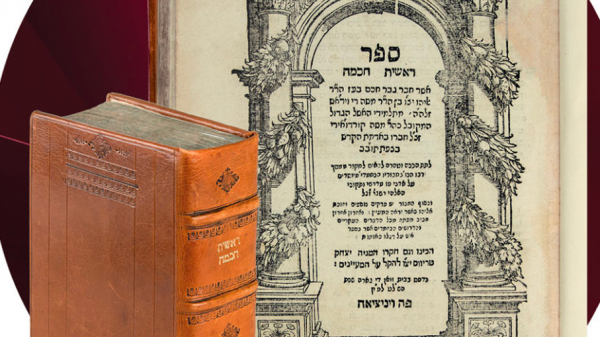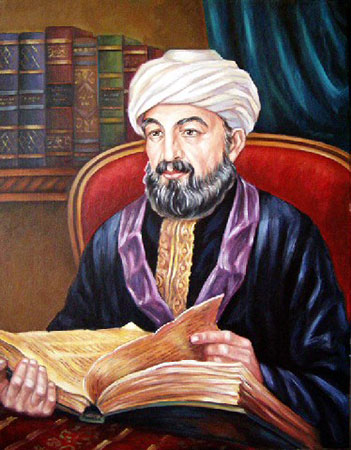Click here to download PDF
Why before Tisha b’Av?
Parshas Devarim is always the parsha we read before Tisha b’Av. This is already mentioned in the Rambam’s laws of Tefillah (13:2 – the emphasis there is to read V’eschanan after Tisha b’Av which we will discuss next week). If this has been the custom for so long then we must be able to find a connection between starting the final book of the Chumash and Tisha b’Av, especially as this year it comes out on Tisha b’Av itself
Torah in 70 Laguages?
The Pasuk says (1:5): “on the other side of the Yarden in the land of Moab Moshe began to clarify this Torah…” Rashi explains: “clarify this Torah” – means in 70 languages he explained it to them. For what purpose? If the Torah could be understood in Hebrew alone why say it over and other languages?
After 40 years Moshe speaks?
The second Midrash Tanchuma in this week’s Parsha on the words “These are the words that Moshe spoke” says: “said the Jewish people: yesterday you (Moshe) said “I am not a man of words” (Shemos 4:10) and now you are speaking so much! Said Rav Yitzchak he learned the Torah and he got healed……at the end of 40 years after the Jews left Egypt he started to explain the Torah in 70 languages ‘he clarified this Torah’ the mouth that said, ‘I am not a man of words’ said “These are the words that Moshe spoke….” The Jewish people, only now, at the end of 40 years found that ‘Moshe spoke a lot’? What was for the last 39 years when he had taught them the whole Torah and is now reviewing it for the last time before he passes on just five weeks later? Furthermore, the Midrash said “he learned Torah and that’s what healed his tongue” – but the giving of the Torah was shortly after leaving Egypt! Only now at the end of 40 years it’s called that ‘his tongue was healed, and he is speaking Torah’?
Sefer Devarim vs the rest of Chumash
There is a very great difference in style between the book of Devarim and the other four Chumashim. In the book of Devarim you’ll never find the common opening statement that we find elsewhere “Hashem said to Moshe to tell the Jewish people”. Devarim is, as the book starts, “These are the words that Moshe spoke as the whole book is written as Moshe’s monologue. This is not merely a difference in style, it is a reality! The gemara (megillah 31b) states: “…. says Abayeh this halacha was only said regarding the curses in Vayikra but the in curses in Devarim the reader can stop in the middle. The reason is these in Vayikra were said in plural and Moshe said it over from the mouth of Hashem and these (in Devarim) were said and singular and Moshe said it from his own mouth”. Tosfos adds that even though “Moshe of said it from his own mouth” it was with Ruach haKodesh. Let us be clear: Moshe would not incorporate into the Torah scroll a single word or letter on his own! Everything that got written in the Torah scroll was by Divine command! However, Moshe writes by Divine command things that human beings have said. Hashem instructed him to write in the Torah quotations from Pharoah or the whole story of Bilaam that the Gemara in Bava Basra calls “the book of Bilaam” (see Even Shesiya on Parshas Balak). Words that Bilaam had originally said and his prophecies were incorporated into the Torah by Divine command. In sefer Devarim Moshe is commanded to write his own words that he had spoken to the Jewish people in the Torah scroll. The book of Devarim is equally a part of Chumash because Hashem commanded those words to be written in the Torah, but there is still a very great difference. What was written in the first four books are “Hashem’s words in Moshe’s mouth” and that’s what we mean by: “the Divine Presence speaks from his mouth”(Mechilta 18:19). Since they are not Moshe’s own words, rather Hashem’s words, Moshe is still “not a man of words”. The book of Devarim is comprised by Divine command of the words of Moshe. These were his Torah insights and ideas that he shared with the Jewish people. Moshe had the Divine inspiration to come up with these ideas and to say these words and then Hashem commanded him to incorporate these words in the Torah. This is similar to the difference between the oral law and the written law. The written law is clearly the words of Hashem that the prophet is relaying to us. In the oral law the Torah strikes root and grows within us and we start producing Torah! Chazal tell us “a man does not fully understand his Rebbe’s thinking (Daas Rabo) until 40 years later”. What does that mean? Of course, the person can ‘parrot’ what his Rebbe told him and his memories to say the exact words of His Rebbe will probably be sharpest earlier on, rather than later. However, the assimilation of the Rebbe’s way of thinking so as the student has his Rebbe’s mind inside of him, and not just the words, that’s a 40-year process. This was the 40th year since the giving of the Torah. Moshe was the ‘mouthpiece’ of the Divine Presence during these 40 years, but in course of these 40 years the Torah was gradually seeping inside of him. The Tanchuma we quoted earlier is paraphrased in the Midrash Rabbah as “when Moshe acquired (Zacha) Torah he became a man of speech”. At the end of the 40 years the Torah had been absorbed inside of him and “the Torah healed his tongue” and now he could produce his own Torah. This is like the oral law. The Torah blossoms within the sages and “their mouths shine with Divrei Torah”
Why Devarim is called “Mishneh Torah”
With this we can have a greater understanding and appreciation of why the book of Devarim is called “Mishneh Torah”. The conventional explanation is that Devarim is ‘seconding’ i.e. reviewing much of what was already taught. This alone does not suffice as not everything is repeated and there are definitely some new ideas in Devarim that we don’t find earlier. “Moshe began to clarify this Torah” wasn’t just about the clarity from review, it was to give us the tools to attain Clarity whenever we need it! This is the power of the oral law with its capacity to produce answers to new questions or to reconstruct lost information. The book of “Devarim”-words is the power of the oral law being connected to the Chumash. This is the parting gift as Moshe is going to leave us and no longer be there to clarify the Torah. He’s giving us the tools to clarify the Torah for ourselves and a bridge to stay connected. The Netziv posits that what the Gemara (Nedarim 38a) says “Hashem gave the power of ‘pilpul’ to Moshe alone but he was generous and shared it with the Jewish people” is exactly what is happening in the book of Devarim. The power to analyze, to research the origins of halacha and produce new halacha with the ‘Middos shehaTorah nidreshes’ and all the other elements of ‘pilpul’ are being given over to compensate for Moshe’s impending absence. Already in the days of the mourning of Moshe massive amounts of material was forgotten and “Osniel ben Kenaz restored it with his pilpul” Moshe gives us this ‘pilpul’ with the book of Devarim. it’s an aspect of the oral law incorporated in the Chumash as bridge so that there will be a direct Continuum from that level to the Torah as we know it and understand it.
Mishnah
We now can understand why Devarim is called “Mishneh Torah”. It is like the Mishnah of the oral law and did exactly Rav Yehuda HaNassi meant to do with the Mishnah. Why Rav Yehuda HaNassi write and mandate that Mishna should be taught? The Rambam (introduction to Mishneh Torah) explains because Rav Yehuda HaNassi saw how the Jews were dispersing and the Exile was getting harder and harder and this was to preserve the Torah. The Mishnah pulls together all the teachings of all the earlier generations and connects them and in a way that everything would be easy to remember, and the details easily derived. That’s why it’s called the “orders of the Mishnah”. It is in an orderly pattern that it’s easy to hold together, retain, easy to derive the details that weren’t written, and to come up with new laws and have a framework with which to assimilate them. Devarim was a precursor of Mishnah that kept Torah not just preserved but also retained its full Vitality to continue to Blossom and expand despite the long and hard Exile. With this we could understand what Chazal say (Vayikra Rabba 7) “The exiled will be gathered in in the Merit of The Mishnah”. The Mishnah kept us connected, just like it connects all the laws of the oral law, the written and unwritten. It preserves Torah, stops us from assimilation, and provides the power to “pull back together” – the opposite of the dispersal of the Exiles.
70 Languages – 70 Angles
With this we could understand what it means “Moshe clarified this Torah – in 70 languages”. It means that Moshe was giving us angles on the Torah that would enable us to endure the Exiles under the 70 different nations! As we moved around the globe and our spoken language became a synthesis of Hebrew, Aramaic, and the language of our host country, in those languages chidushei Torah were produced! Although subsequently written in Rabbinic Hebrew because that is our literary language, but these ideas were originally said by the Rabbis in the colloquial that they used. “70 languages” is alluding to that the oral law will survive under all 70 different cultures. Even if we accept the position of the “HaKsav v’hakabalah” that Moshe did not literally say over in 70 languages but rather gave us “70 different angles”, that is still the point! These are the different angles to access Torah. If we view the world as Chazal did, with the land of Israel in the center and everywhere else is called “outside of the land” that means that from Israel we could have all the different Vantage points as it is the center. But from each and every land outside of Israel, just like we face Israel during our prayers from the particular angle of that country, so also from that land is a unique angle on the Torah. In all the different places we were in Exile, each Place produce its own unique style of learning and of Divine service. Just like Jews spoke a unique dialect that developed there, so also a unique angle on Torah emerged because of that land’s a unique course to be plotted to Israel and that particular language’s spiritual connection to Hebrew which was the original language before the languages of Splintered. All this is rooted in “Moshe clarifying the Torah” in Devarim.
Message of Hope
This is the message of the long-standing custom to read Devarim right before Tisha b’Av. This is our consolation and message of Hope! The Jews back then were being prepared to live without Moshe and Moshe gives them the gift of “Mishneh Torah” that was later manifested as the gift of the Mishnah per se. We are reminded that even if we’re going to be in exile amongst the nations, we will find Torah wherever we are. This is the message of hope that we need to read before Tisha bAv.
